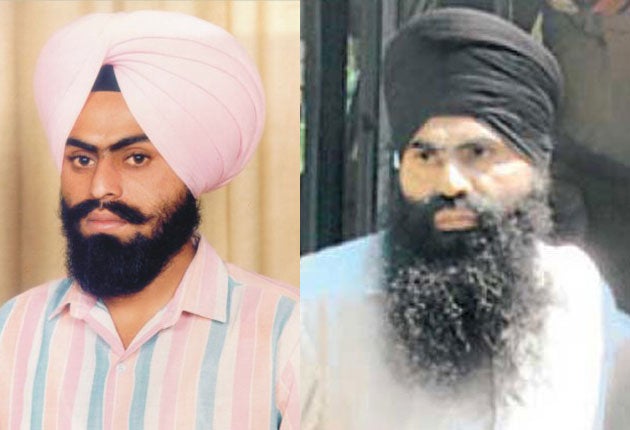India paves way for first hangings since 2004 – if executioner can be found

Your support helps us to tell the story
From reproductive rights to climate change to Big Tech, The Independent is on the ground when the story is developing. Whether it's investigating the financials of Elon Musk's pro-Trump PAC or producing our latest documentary, 'The A Word', which shines a light on the American women fighting for reproductive rights, we know how important it is to parse out the facts from the messaging.
At such a critical moment in US history, we need reporters on the ground. Your donation allows us to keep sending journalists to speak to both sides of the story.
The Independent is trusted by Americans across the entire political spectrum. And unlike many other quality news outlets, we choose not to lock Americans out of our reporting and analysis with paywalls. We believe quality journalism should be available to everyone, paid for by those who can afford it.
Your support makes all the difference.Human rights campaigners have called on the Indian government not to proceed with its first executions in seven years after the President refused to commute the sentences of two men on death row.
President Pratibha Patil, following the advice of the Indian government, rejected the mercy petitions of the men, opening the way for India's first hangings since 2004. Such is the nation's unpreparedness that one of the states where the executions are to take place has begun searching for a hangman.
President Patil's office announced her decision after lawyers for Devinder Pal Singh Bhullar and Mahendra Nath Das turned to her after failing to overturn their convictions and sentences in the courts. Das has been on death row since 1997 for committing a murder in Assam, while Bhullar was sentenced to death in 2001 for his alleged role in plotting a series of terror attacks in Delhi in 1993 that left nine people dead. Supporters of the former member of the Khalistan Liberation Force (KLF), a militant organisation that campaigned for an independent and separate Sikh state, insist he is innocent.
"Reports that India will execute two men after an encouraging seven-year hiatus are hugely disappointing, and would be a step backwards for human rights in the country," said Sam Zarifi, Amnesty International's Asia-Pacific director. "For India to use the death penalty now would also be bucking the global trend towards ending executions, numbers of which continue to decline."
In 1983, India's highest court ruled that the death penalty should be reserved for only the "the rarest of rare cases" that met conditions fixed by the court. Recently, it ruled that those responsible for so-called honour killings met the conditions for the death penalty. Courts have also extended the penalty to cases of terrorism.
Yet while India has in recent years repeatedly voted against a moratorium on the death penalty adopted by the UN General Assembly, few executions have been carried out here in the past decade. It is estimated that since November 2009, the President has commuted about 20 death sentences to terms of life imprisonment. The last execution took place in 2004 when a security guard, Dhananjoy Chatterjee, was hanged in a Kolkata jail for the rape and murder of a teenage girl 14 years earlier. It is understood that before that, the previous execution was in 1995.
Analysts say the decision to reject the latest petitions comes amid a growing politicisation of the death penalty, which may have increased after Pakistani militant Ajmal Kasab was sentenced to death for his role in the 2008 Mumbai attacks. Several people, especially within the opposition Bharatiya Janata Party, said he should have been hanged immediately after his trial, rather than allowing for a review process that could last years.
"The issue has lost the objective sheen that it should have. The death penalty debate used to be an objective debate," said Pushkar Raj, of the People's Union for Civil Liberties, India's oldest human rights organisation. "We now have polarised political positions."
But it may be that the executions do not go ahead, at least not immediately. This week it was revealed that the state of Assam, where 45-year-old Das is being held, no longer employs an executioner, so rare is the need.
"As there is no hangman in the state, the exact date of execution is yet to be fixed," the head of Jorhat jail, where Das is being held, told the Times of India newspaper.
Supporters of Bhullar have repeated their claims that the activist was not guilty of the crime for which he has been sentenced to die.
"It is unacceptable that he faces execution based on evidence extracted under torture. This cannot be acceptable to any civilised country and it should not be acceptable to India which prides itself as the largest democracy in the world," said Prem Singh Vinning, head of the World Sikh Organisation of Canada, where Bhullar's wife lives.
Subscribe to Independent Premium to bookmark this article
Want to bookmark your favourite articles and stories to read or reference later? Start your Independent Premium subscription today.
Join our commenting forum
Join thought-provoking conversations, follow other Independent readers and see their replies
Comments